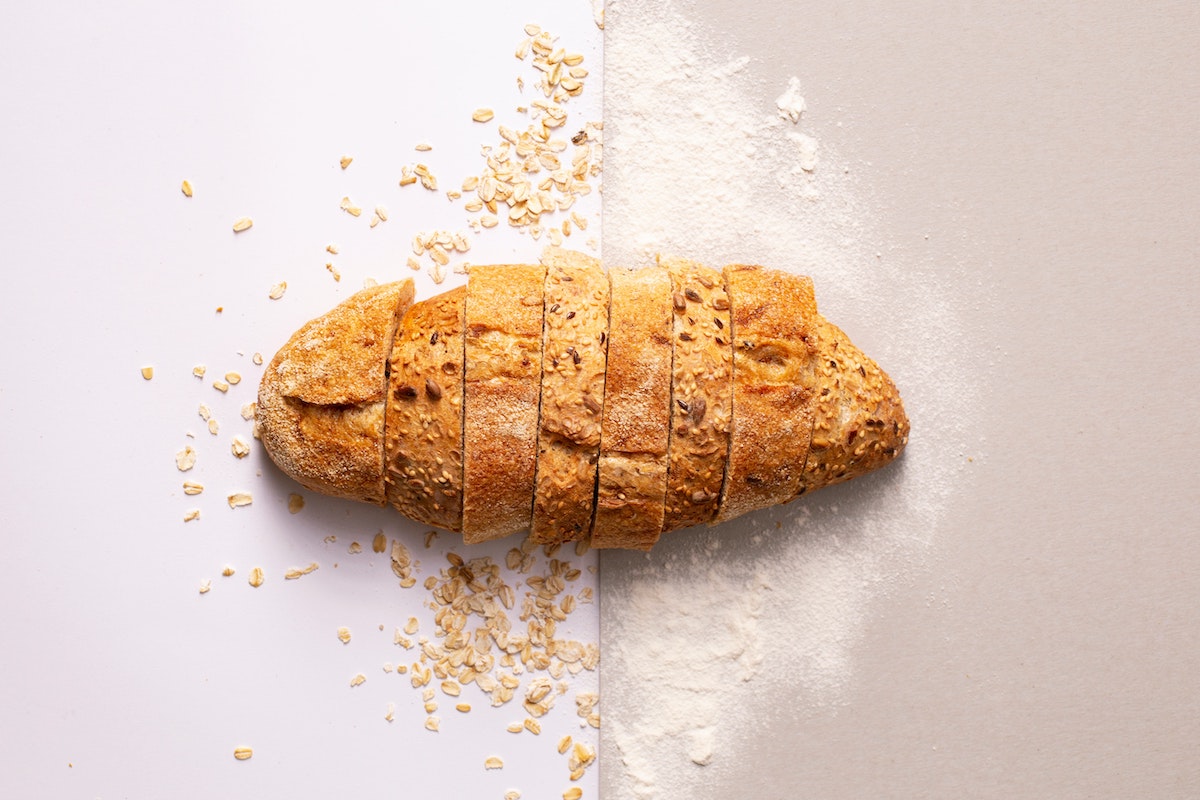
Elimination diets are nothing new. Over the years, people have cut carbs (see: Atkins and Keto). Low-or-no-fat diets have also had their days in the sun. Same for low-to-no-added-sugar and gluten-free (necessary for people with issues like Celiac disease, not so much for people just “trying to be healthy” or “lose weight.”). One man recently cut out anything not on a McDonald’s menu (do a Google search). Generally speaking, experts advise against elimination diets, especially without consulting a healthcare provider. However, there’s a new trending elimination diet called the low FODMAP diet.
It’s not new, per se, but it’s made headlines in the last six months for its purported ability to cure irritable bowel system (IBS). If true, a low FODMAP diet could help people living with IBS — according to the American College of Gastroenterology. What is a low FODMAP diet, and what else might the plan help with (if anything)? Here’s a guide to the low FODMAP diet for beginners.

Low FODMAP diet for beginners: Definition and foods
Whether you’re hearing about the FODMAP diet for the first time today or recently heard the plan suggested as a cure for digestive issues, you have questions. Let’s dig in.
What is a low FODMAP diet?
A low FODMAP diet is more of a lifestyle for people benefitting from the plan. A person following the diet will go light on FODMAPs foods, which are ‘Fermentable, Oligo-saccharides, Di-saccharides, Mono-saccharides, and Polyols. Wait, what? Let’s break the diet down, word by word:
- Fermentable: Your gut bacteria convert these foods to gasses through fermentation, a chemical process not limited to wine-making.
- Oligosaccharides: This term refers to prebiotics or soluble plant fibers.
- Disaccharides: Simple sugars in water, like lactose.
- Monosaccharides: Fructose (people adhering to the diet don’t have to cut all fruit, though).
- Polyols: Sugar alcohols that are found in some fruits and artificial sweeteners.
Essentially, FODMAP-rich foods are challenging to absorb and digest. People sensitive to FODMAPs may experience digestive issues after consuming these foods, which can be uncomfortable and reduce their quality of life. As a result, they may cut back on FODMAP-rich foods.
What foods are on the low FODMAP diet?
Cutting out or down on certain foods can be a considerable challenge, even as elimination diets have gone in and out of style. The challenge of maintaining an elimination diet is one of several reasons why dieticians and doctors are wary of elimination diets. People adhering to a low-FODMAP diet eliminate or significantly reduce consumption of:
- Artichoke
- Asparagus
- Onion
- Cauliflower
- Garlic
- Snap peas
- Apples
- Cherries
- Dried Fruit
- Mango
- Lactose products like milk, cottage cheese, yogurt, and ice cream
- Legumes
- Wheat, rye, and barley bread
- Honey
- High-fructose corn syrup
- Cashews
What foods can you eat on a low FODMAP diet?
The low FODMAP diet leaves a person with fewer options — but they still have menu choices.
These foods are still on the table while following a low FODMAP diet:
- Eggplant
- Green beans
- Bok choy
- Grapes
- Kiwi
- Potato
- Almond milk
- Hard cheeses
- Oats
- Firm tofu
- Eggs
- Some meats
- Dark chocolate
- Walnuts

FODMAP diet: Benefits and risks
Like gluten-free diets, a low-FODMAP meal plan benefits a specific population. However, only some people need to be adhering to the diet.
What are the symptoms of FODMAP sensitivity?
The no (or low) fly list of foods on the low FODMAP diet may not leave the best taste in your mouth. Is adhering to a low FODMAP diet worth your time? First, you should figure out if you have FODMAP sensitivity in the first place. A doctor or a dietician will provide you with the best insights. Some FODMAP sensitivity symptoms to note are the same as signs of IBS and include:
- Gas
- Bloating
- Constipation
- Cramps
- Diarrhea
A provider may have you eliminate FODMAP-rich foods to see if you notice a significant reduction in symptoms.
What are the potential benefits of a low FODMAP diet?
Though elimination diets are generally frowned upon, a low FODMAP diet may benefit people with IBS. We aren’t clear on the cause of IBS, but diet can play a role. Research, including a randomized controlled trial from 2014, has found that consuming a diet low in FODMAP foods effectively reduces IBS symptoms.
People consuming a low FODMAP diet may find they have less:
- Gas
- Bloating
- Constipation
- Cramps
- Diarrhea
They also may feel less stressed about their IBS symptoms and feel they’re experiencing a better quality of life, which cannot be understated.
What is bad about a low FODMAP diet?
A low FODMAP diet cuts out nutritious foods like beans, nuts, and dairy. This step is unnecessary if you don’t have certain conditions and may pose more significant challenges trying to consume a well-balanced diet.
The human body is designed to consume foods it can’t completely digest. Dietary fiber found in apples is actually vital for the digestive system and body, keeping you feeling full and “things” moving. Not consuming these foods can have the opposite effect than desired — digestive issues may be more significant without them.
Your best bet is to discuss digestive or dietary concerns with a doctor. A primary care physician can refer you to a dietician for more insights and advice.



